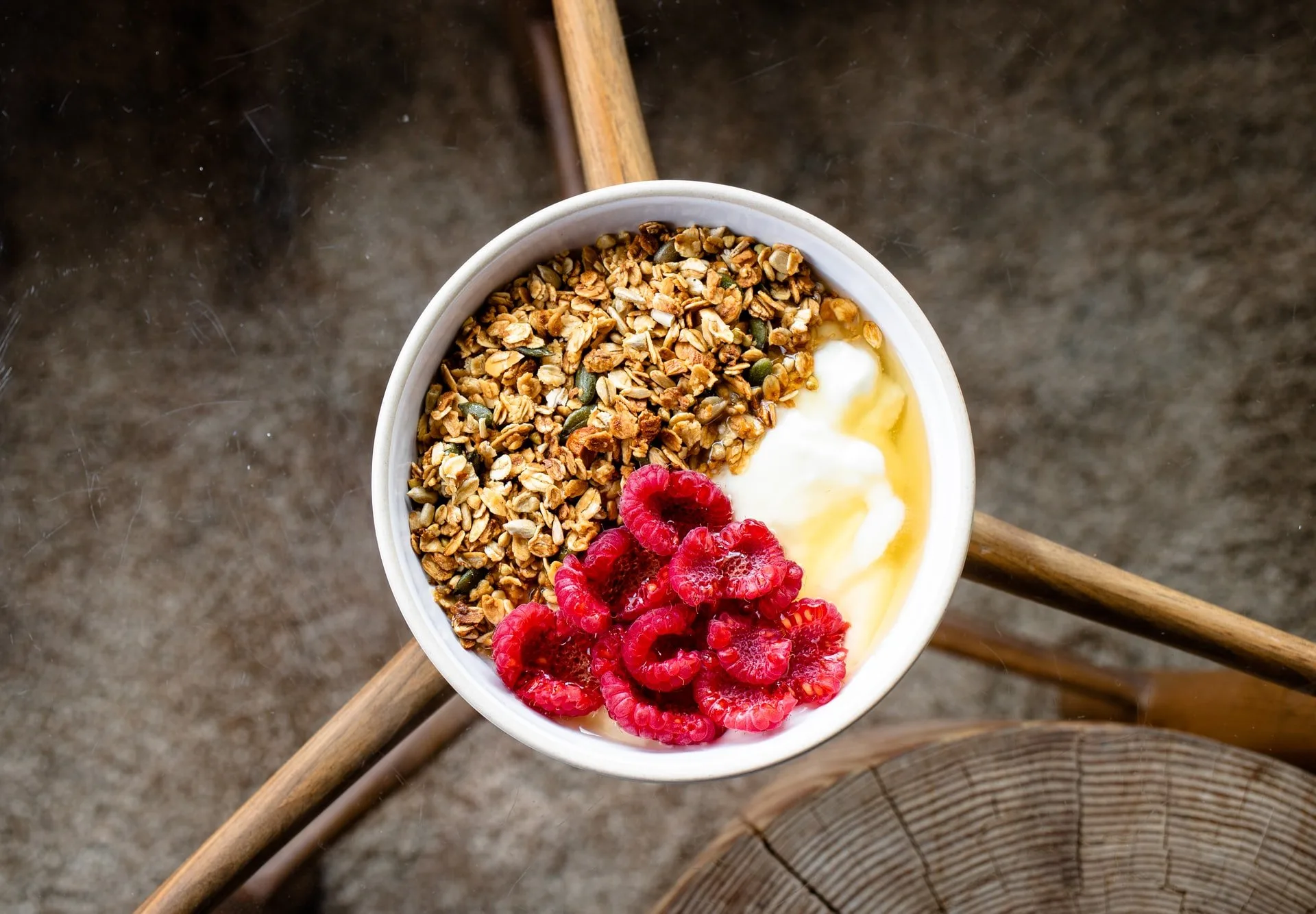Often, when we think of oats or porridge, what comes to mind is bland, tasteless goo. Trust us, this is not what you’ll find here! This oats porridge is delicious topped with 1 tablespoon of the following: sunflower seeds, pumpkin seeds, flaked almonds, peanut butter, almond butter, plus fresh blueberries, strawberries or mixed berries. Modify it according to your tastes, and enjoy it the way you like oats best.
Serves 1
Ingredients:
- 40g rolled oats
- 180 ml skimmed, soya or almond milk
- 2 tsp stevia or xylitol
- pinch of salt
- 1/2 tsp cinnamon .
Method of preparation:
1. Place the oats and cooking liquid in a small pot. Cook over a medium heat uncovered, for around 5 minutes – stirring as the oats thicken and reach the desired consistency (add more water if necessary).
2. Once the oats are cooked and creamy, add the stevia, salt and cinnamon.
3. Remove from the heat. Spoon the porridge into a bowl.
4. Allow to stand for a few minutes before eating – it swells and gets much better.
The Oats Porridge Recipe
This delicious recipe has been extracted from Dr Michelle Braude’s new book on nutrition, The Food Effect. Click here to find out more about the book and follow her on Instagram at @thefoodeffectdr.
2 Major Principles of the food effect diet:
1. Eat whole, natural foods
Avoid packaged, processed foods as much as possible. This means eating whole, natural foods that are close to, if not in, their natural state; for example, fresh fruit, vegetables, whole grains, nuts, eggs, dairy products and fish. The shorter the ingredient list on a package of food, the better it will be for you.
2. Don’t Shun Carbs
Instead, stick to whole-gain, unrefined carbohydrates such as oats, wholemeal or rye bread, brown rice, sweet potatoes and quinoa. Slow-release carbs from whole-grain sources will give you the get-up-and-go you need to stay active and full of energy, while keeping your metabolism going strong and steady all day (and night). They are also great sources of fibre and other essential nutrients.
Want to know more?
It’s very easy to deny that you may have a sugar addiction. But if you feel the urge to reach for a chocolate bar every time your energy levels drop, or you simply cannot have an iced tea, yoghurt or breakfast cereal without it being flavoured, it could be time for a much needed intervention.



![women [longevity live]](https://longevitylive.com/wp-content/uploads/2020/01/photo-of-women-walking-down-the-street-1116984-100x100.jpg)










